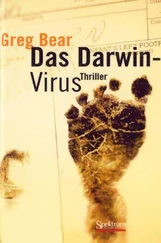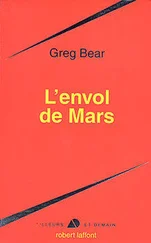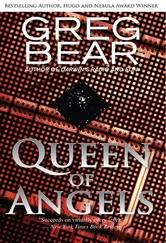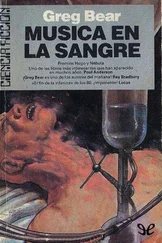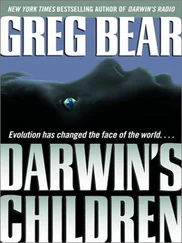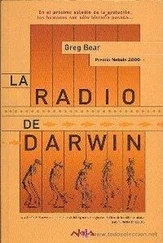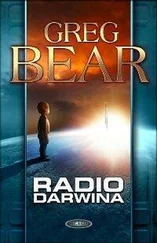“They’re reservoirs, Christopher,” Augustine said. “If the babies get out in the general public, they’ll be vectors. All it took for AIDS was a few.”
“We admit it stinks,” Newcomb said, glancing at Augustine. “I feel that in my gut. But we’ve done computer analysis on some of these activated HERV Given expression of viable env andpol genes, we could have something much worse than HIY The computers point to a disease like nothing we’ve seen in history. It could burn the human race, Dr. Dicken. We could just flake away like dust.”
Dicken pushed up out of his chair and sat on the edge of his bed. “Who disagrees?” he asked.
“Dr. Mahy at the CDC,” Augustine said. “Bishop and Thorne. And of course James Mondavi. But the Princeton people agree, and they have the president’s confidence. They want to work with us on this.”
“What do the opponents say?” Dicken asked Newcomb.
“Mahy thinks any released particles will be fully adapted retroviruses, but nonpathogenic, and that the worst we’ll see is a few cases of some rare cancers,” Augustine said. “Mondavi also sees no pathogenesis. But that’s not why we’re here, Christopher.”
“Why, then?”
“We need your personal input. Kaye Lang has gotten herself pregnant. You know the father. It’s a first-stage SHEVA. She’ll have her miscarriage any day now.”
Dicken turned away.
“She’s sponsoring a conference in Washington state. We tried to get the Emergency Action Office to shut it down—”
“A scientific conference?”
“More mumbo-jumbo about evolution. And, no doubt, encouragement for new mothers. This could be a PR disaster, very bad for morale. We don’t control the press, Christopher. Do you think she’ll be extreme on the subject?”
“No,” Dicken said. “I think she’ll be very reasonable.”
“That could be worse,” Augustine said. “But it’s also something we can use against her, if she claims the support of Science with a capital S. Mitch Rafelson’s reputation is pure mud.”
“He’s a decent fellow,” Dicken said.
“He’s a liability, Christopher,” Augustine said. “Fortunately, he’s her liability, not ours.”
AUGUST 10
Kaye carried her yellow legal pad from the bedroom to the kitchen. Mitch had been at the University of Washington since nine that morning. The first reaction to his visit at the Hayer Museum had been negative; they were not interested in controversy, whatever his support from Brock or any other scientist. Brock himself, they had sagely pointed out, was controversial, and according to unnamed sources had been “let go from” or even “forced out of” the Neandertal studies at the University of Innsbruck.
Kaye had always loathed academic politics. She set the notebook and a glass of orange juice on a small table by Mitch’s worn chair, then sat down with a small moan. With nothing coming to her this morning and no sense of where to take the book next, she had started a general short essay that she might use at the conference in two weeks…
But the essay had abruptly stalled as well. Inspiration was simply no competititon for the peculiar tangled feeling in her abdomen.
It had been almost ninety days. Last night, in her journal, she had written, “Already it is about the size of a mouse.” And nothing more.
She used Mitch’s remote to turn on the old TV Governor Harris was giving yet another press conference. He went on the air every day to report on the Emergency Act, how Washington state was cooperating with Washington, D.C., what measures he was resisting — he was very big on resistance, playing to the rugged individualists east of the Cascades — and explaining very carefully where he thought cooperation was beneficial and essential. Once more he went through a bleak litany of statistics.
“In the Northwest, from Oregon to Idaho, the law enforcement officials tell me there have been at least thirty acts of human sacrifice. When we add this to the estimated twenty-two thousand incidents of violence against women around the country, the Emergency Act seems long overdue. We are a community, a state, a region, a nation, out of control with grief and panicked by an incomprehensible act of God.”
Kaye rubbed her stomach gently. Harris had an impossible job. The proud citizens of the U.S.A., she thought, were adopting a very Chinese attitude. With the favor of Heaven so obviously withdrawn, their support for any and all governments had diminished drastically.
A roundtable discussion with two scientists and a state representative followed the governor’s conference. The talk turned to SHEVA children as carriers of disease; this was utter nonsense and something she did not want or need to hear. She shut the television off.
The cell phone rang. Kaye flipped it open. “Hello?”
“Oh beauteous one…I’ve got Wendell Packer, Maria Konig, Oliver Merton, and Professor Brock, all sitting in the same room.”
Kaye’s face warmed and relaxed at the sound of Mitch’s voice.
“They’d like to meet you.”
“Only if they want to be midwives,” Kaye said.
“Jesus — do you feel anything?”
“A sour stomach,” Kaye said. “Unhappy and uninspired. But no, I don’t think it’s going to be today.”
“Well, be inspired by this,” Mitch said. “They’re going to go public with their analysis of the Innsbruck tissue samples. And they’re going to give papers at the conference. Packer and Konig say they’ll support us.”
Kaye closed her eyes for a moment. She wanted to savor this. “And their departments?”
“No go. The politics is just too intense for department heads. But Maria and Wendell are going to work on their colleagues. We’re hoping to have dinner together. Are you up for it?”
Her roiling stomach had settled. Kaye thought she might actually be hungry in an hour or so. She had followed Maria Konig’s work for years, and admired her enormously. But in that masculine crew, perhaps Konig’s greatest asset was that she was female.
“Where are we eating?”
“Within five minutes of Marine Pacific Hospital,” Mitch said. “Other than that, I don’t know.”
“Maybe a bowl of oatmeal for me,” Kaye said. “Should I take the bus?”
“Nonsense. I’ll be there in a few minutes.” Mitch kissed at her over the phone, and then, Oliver Merton asked to say something.
“We haven’t met yet, to shake hands,” Merton said breathlessly, as if he had just been arguing loudly or had run up a flight of stairs. “Christ, Ms. Lang, I’m nervous just talking with you.”
“You trounced me pretty badly in Baltimore,” Kaye said.
“Yes, but that was then,” Merton said without a hint of regret. “I can’t tell you how much I admire what you and Mitch are planning. I am agog with wonder.”
“We’re just doing what comes natural,” Kaye said.
“Wipe the past clean,” Merton said. “Ms. Lang, I’m a friend.”
“We’ll see about that,” Kaye said.
Merton chuckled and handed her back to Mitch.
“Maria Konig suggests a good Vietnamese pho restaurant. That’s what she craved when she was pregnant. Sound right?”
“After my oatmeal,” Kaye said. “Does Merton have to be there?”
“Not if you don’t want him.”
“Tell him I’m going to stare daggers at him. Make him suffer.”
“I’ll do that,” Mitch said. “But he thrives under criticism.”
“I’ve been analyzing tissues from dead people for ten years now,” Maria Konig said. “Wendell knows the feeling.”
“I do indeed,” Packer said.
Konig, sitting across from her, was more than just beautiful — she was the perfect model for what Kaye wanted to look like when she reached fifty. Wendell Packer was very handsome, in a lean and compact sort of way — quite the opposite of Mitch. Brock wore a gray coat and black T-shirt, dapper and quiet; he seemed lost in even deeper thought.
Читать дальше
Конец ознакомительного отрывка
Купить книгу

